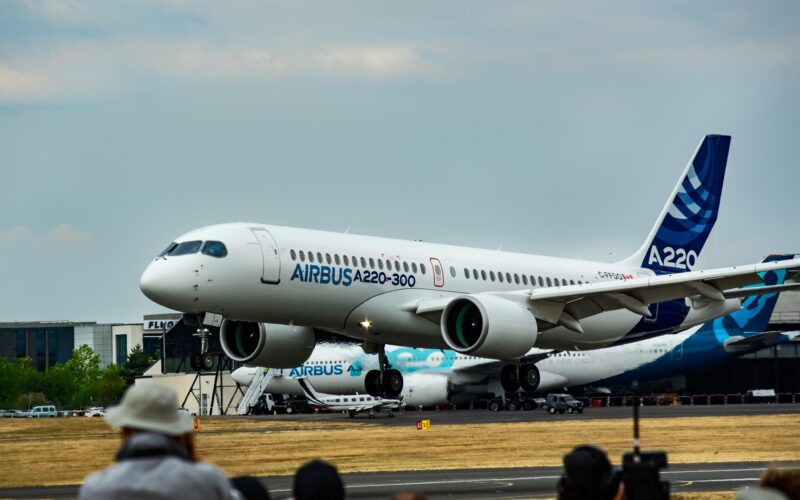Transport Canada issues AD after supplier raises Airbus A220 quality defect

Transport Canada has issued a new airworthiness directive (AD) for the Airbus A220, warning that overheat detection sensing elements in the bleed air system could fail due to insufficient salt fill.
The regulator says this could damage structures and systems, preventing safe flight and landing. Two service bulletins have been issued previously by Airbus Canada Limited Partnership to test and replace any affected sensing elements.
The latest AD supersedes the March 2022 directive after an error in part definition was identified, with the new directive coming into effect on May 2, 2023.
Affecting A220-100 and A220-300 aircraft
The new TC directive affects over 172 Airbus A220-100 and A220-300 aircraft divided into Group A and Group B. A sensing element with a part number defined in Kiddie Aerospace and Defense SB CFD-26-1 is identified as the affected part, unless it has been tested and found serviceable or marked according to manufacturer’s instructions.
For Group A aircraft, sensing elements must be tested within 2,450 flight hours or 18 months from April 18, 2022, and replaced if they fail. The latest Group A Airbus A220-100 manufacturer serial number (MSN) mentioned in the AD issued by TC us 50061, an A220-100, which, according to ch-aviation.com data, is registered as N141DU and was delivered to Delta Air Lines in March 20021. The latest Group A A220-300 MSN is 55109, an aircraft belonging to Air Canada and registered as C-GTZH.
Operators of Group B aircraft manufactured on or before April 11, 2022, must check for the installation of affected parts. In terms of affected aircraft in Group B, the latest A220-100 MSN is 50062, Comlux Aviation Malta’s Airbus Corporate Jets (ACJ) delivered in January 2022, registered as 9H-FIVE, while the latest A220-300 MSN is 55110. The aircraft was delivered to Swiss International Air Lines (SWISS) by Airbus in May 2021, and is registered as HB-JCU.
The AD also applies to subsequent MSNs of Group B aircraft, including the A220-100 and A220-300.
The bleed air system provides excess air to systems such as wing anti-ice, cabin pressurization, and pressurization of water, waste, and hydraulic tanks.
